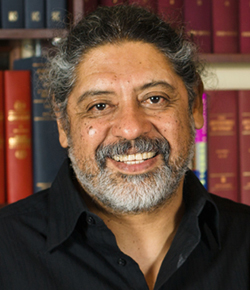POETS & WRITERS IS MORE than a magazine. We are a nonprofit organization dedicated to serving creative writers. We pay fees to writers giving readings and leading workshops, provide information and advice to authors, and help them connect with one another and with audiences. We also sponsor a number of awards and prizes. Learn more at pw.org.
The Real Business of Writing
| The Details of the R/W Program |
|
| More than eighty writers from thirty-two states and the District of Columbia have won the WEX Award since 1984. They include Sue Monk Kidd, David Mura, and Mona Simpson, among many others. | |
| For a complete list of past winners and to read an excerpt from José Faus’s winning manuscript, visit at.pw.org/wexaward. | |
| The Maureen Egen Writers Exchange Award is supported by a generous contribution from Hachette Book Group USA, in honor of Maureen Egen, for whom the award is named. | |
| Check out the Literary Events Calendar at www.pw.org/calendar for events in your area. | |
| Applications are now being accepted for the California Writers Exchange, which is offered every third year and is supported by the James Irvine Foundation. Writers living in California are eligible to apply. To download the guidelines and application, visit at.pw.org/ca_wexaward. |
Each year Poets & Writers invites writers from a single state to apply for the Maureen Egen Writers Exchange (WEX) Award. The winning poet and fiction writer receive a trip to New York City to meet with publishing professionals and others in the literary field. We asked José Faus, the 2011 poetry winner from Kansas, to share his impressions of his visit.
 It was an amazing week filled with meetings, luncheons, and dinners with writers, agents, and editors, culminating with a reading that offered a chance for me and a fellow Kansan, fiction writer Sanda Moore Coleman, to share our work.
It was an amazing week filled with meetings, luncheons, and dinners with writers, agents, and editors, culminating with a reading that offered a chance for me and a fellow Kansan, fiction writer Sanda Moore Coleman, to share our work.
We were put up at the Library Hotel on Forty-Second Street, a convenient two blocks from the New York Public Library. Throughout the week, great food accompanied even greater conversation. Stories of writers, editors, and agents maneuvering their way into this wide world of writing and publishing accompanied stories of first books and jobs, writers and clients, desires and habits, chances and happenstance. The conversations at every table were like the best dishes at a never-ending smorgasbord.
There were also visits to literary organizations, magazine publishers, and book publishers both large and small, whose offices ranged from ornate to sedate, cluttered to minimalist, formal to casual. On the crowded shelves at New Directions, I recognized many books that have been my companions for years. I enjoyed easy conversation at the offices of the New Yorker, as well as the hospitality at Bomb magazine. I was made to feel welcome at Poets House, and I soaked in the quiet of the historic Algonquin Hotel.
My visit to Ugly Duckling Presse stands out in my memory. In the large one-room work space, interns stuffed envelopes at a table while a printer worked a letterpress. To the side of the press stood an author with the first pages of his new book in hand. As I spoke with the editor, the printer sidled over, apologized, and asked the editor for help. A glitch in the printing process had interrupted our conversation—and brought the real business of writing into focus. The machine demanded expertise and attention equal to that which the author and the editor had poured into the text. At that moment, all the things I had seen and all the conversations I had shared were unified. I noticed the ink stains on the printer’s apron and the dust on the shelves, the focus of the writer on the printed page, and the concentration of the editor, with wrench in hand, working the settings of the press to achieve the right pressure to transfer the words evenly and firmly to the page. Meanwhile, the interns continued stuffing envelopes with responses to writers everywhere.
The following morning, I walked from the hotel to the New York Public Library and read the bronze plaques embedded in the sidewalk—quotes on writing by famous authors, the literal manifestation of taking the word to the street. Inside, people gazed on Jefferson’s handwritten draft of the Declaration of Independence. A Gutenberg Bible drew another set of reverent eyes. A copy of T. S. Eliot’s The Waste Land with edits by Ezra Pound held me for more than a few moments. A script for Dennis Hopper’s Easy Rider seemed appropriately placed in the same room as Malcolm X’s journal of his trip to Mecca.
If at Ugly Duckling Presse the real business of writing came into focus, then the library affirmed its purpose: to agitate, inform, educate, document, and celebrate.
Those images linger as I prepare for a month at the Jentel Artist Residency in Banner, Wyoming. The residency is the second part of the prize awarded to WEX winners, and the trip to New York prepared me to take advantage of the solace of a writing retreat, fully informed of the business and purpose of this writing life.






